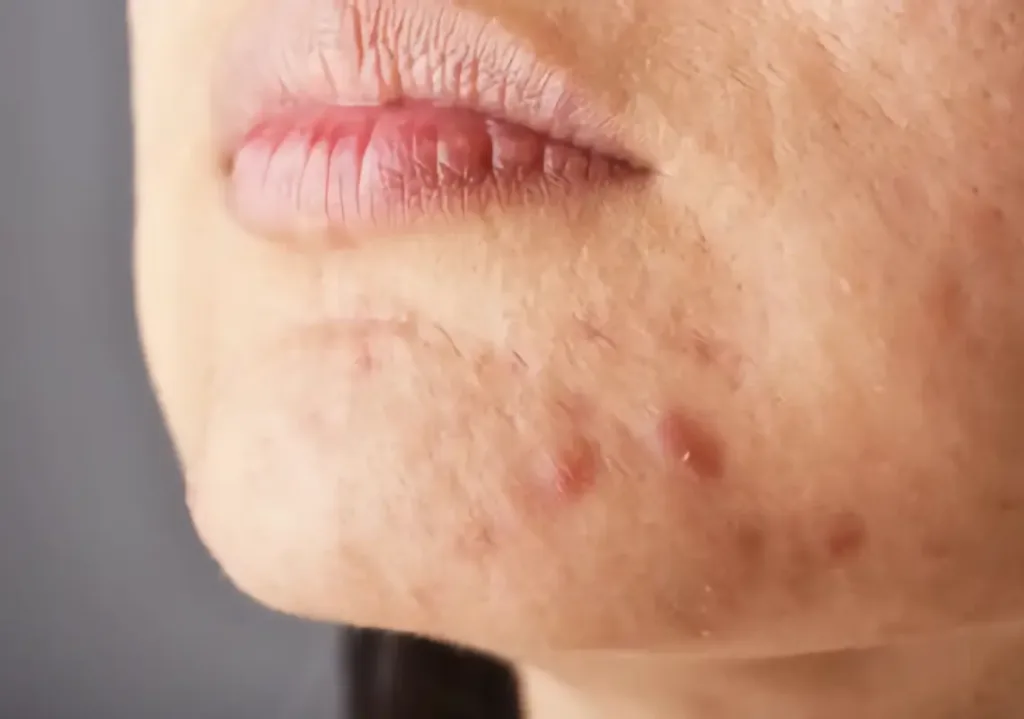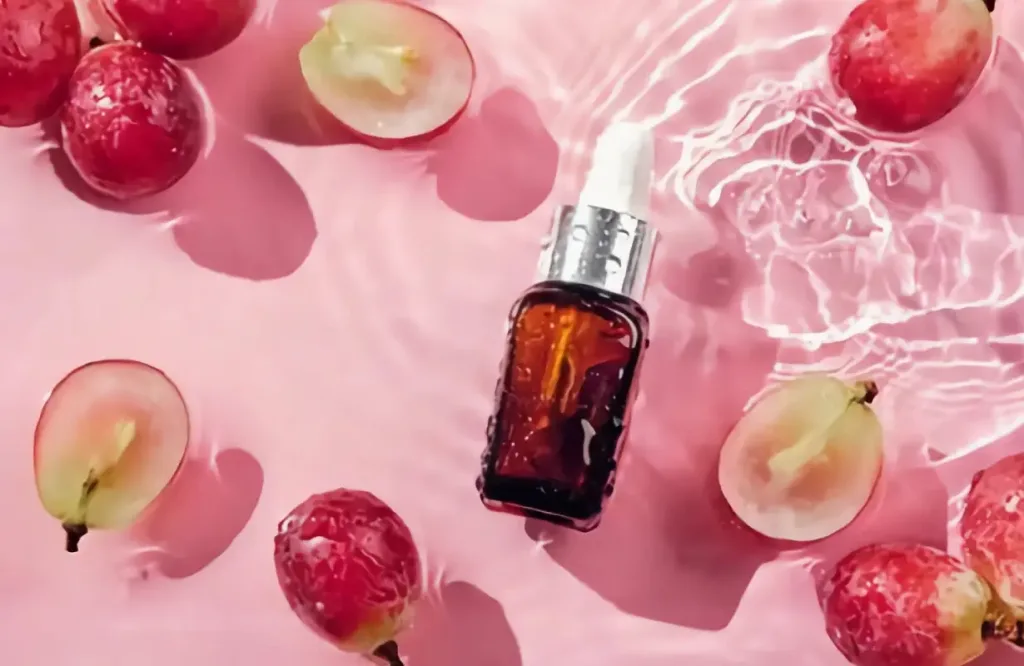Healthy Glow: How Pregnancy Affects Skin and What to Do!
Pregnancy is a beautiful journey filled with excitement and anticipation, but it also comes with its fair share of challenges, including changes to your skin. From that coveted pregnancy glow to pesky breakouts, understanding how pregnancy affects your skin is crucial in maintaining healthy and radiant skin throughout those nine months. In this blog post, we’ll explore the ins and outs of how pregnancy impacts your skin and provide you with valuable tips on how to keep that healthy glow all the way through. So please sit back, relax, and let’s dive into the world of pregnancy skincare!
Introduction to Pregnancy and Skin Changes
Pregnancy is an exciting and joyous time for many women, but it also brings about significant changes in the body. One of the most noticeable changes during pregnancy is the transformation of the skin. As your body prepares to nurture a growing baby, hormonal shifts occur, leading to various skin changes that can be both surprising and challenging.
The increased levels of hormones estrogen and progesterone during pregnancy can cause a range of skin issues, such as acne breakouts, dark spots or melasma, stretch marks, and even changes in hair growth. These changes are entirely normal and affect most pregnant women to some extent. However, they can still be frustrating for those who are used to having clear and healthy skin.
Acne Breakouts

During pregnancy, hormonal fluctuations can lead to an increase in the production of sebum, a natural oil that keeps our skin moisturized. Excess sebum production can clog pores and result in acne breakouts on the face, chest, back, or other areas of the body.
If you experience acne breakouts during pregnancy, it is essential to avoid harsh chemicals or medications that may harm your baby’s development. Instead, opt for gentle cleansers containing natural ingredients like tea tree oil or salicylic acid, which are safe for use during pregnancy.
Dark Spots or Melasma
Melasma is also known as “the mask of pregnancy” due to its appearance on the face as dark patches around the cheeks and forehead. These spots occur due to an increase in melanin production triggered by hormonal fluctuations during pregnancy.
To prevent melasma from worsening or appearing more prominent than necessary, use sunscreen with SPF 30 daily, as well as wear hats when going out into direct sunlight. Additionally, using products containing Vitamin C or Vitamin E has shown promising results in reducing hyperpigmentation caused by melasma.
Stretch Marks
As your baby grows inside your womb over nine months, your skin will start to stretch to accommodate the growing baby. This stretching can lead to pink or purple lines on the abdomen, breasts, thighs, and hips, known as stretch marks.
While there is no guaranteed way to prevent stretch marks during pregnancy, keeping the skin moisturized with oils or lotions can help reduce their appearance. Additionally, maintaining a healthy weight gain during pregnancy can also prevent excessive stretching of the skin.
Changes in Hair Growth
Some pregnant women may experience changes in hair growth due to hormonal shifts. This may include thicker or faster-growing hair on the head and an increase in facial or body hair. These changes are temporary and typically resolve after giving birth.
Pregnancy brings about many significant changes in a woman’s life, including those that affect her skin. However, these changes are temporary and often subside after delivery. In our next section, we will discuss tips on how to maintain healthy and glowing skin during pregnancy.

Understanding How Hormones Affect Your Skin During Pregnancy
Pregnancy is a beautiful and transformative journey for every woman. Along with the physical changes that occur during this time, significant hormonal shifts also occur within the body. These hormonal changes can have a noticeable impact on the skin, causing various skin issues that may be new or exacerbated during pregnancy.
The endocrine system plays a crucial role in regulating hormones throughout the body. During pregnancy, the production of estrogen and progesterone increases dramatically to support fetal development and prepare for childbirth. This increase in hormones can lead to several changes in the skin, some of which may not be desirable.
One common effect of pregnancy hormones on the skin is increased oil production. This can result in oily or combination skin, leading to breakouts and acne flare-ups. Additionally, higher levels of estrogen can cause an increase in melanin production, resulting in dark patches on the face known as melasma, or “the mask of pregnancy.”
Another significant change that occurs due to hormonal fluctuations is increased blood flow to the skin’s surface. This causes many pregnant women to experience a rosy or flushed complexion, commonly referred to as “the glow.” However, it can also make existing conditions, such as rosacea, more pronounced.
Furthermore, these hormonal changes can also affect collagen and elastin production, two essential proteins responsible for keeping our skin firm and elastic. As estrogen levels rise during pregnancy, so does collagen production initially; however, towards the end of pregnancy, when estrogen levels decrease rapidly after giving birth, this sudden drop often leads to postpartum hair loss and sagging skin.
It is crucial to keep in mind that every woman’s experience with hormone-induced changes in their skin will be unique. Some may see improvements, while others may struggle with new challenges such as dryness or sensitivity.
To manage these effects effectively and maintain healthy-looking skin during pregnancy, it is essential to establish a proper skincare routine suitable for your specific needs. It should include gentle cleansers, moisturizers, and sunscreen to keep the skin clean, hydrated, and protected from UV rays.
It is also essential to consult with your healthcare provider before using any skincare products during pregnancy, as some ingredients may not be safe for you or your baby. Additionally, maintaining a healthy diet rich in fruits and vegetables can help support your skin’s health from within.
Understanding how hormones affect your skin during pregnancy is crucial for taking care of yourself both inside and out. With proper skincare habits and guidance from your healthcare provider, you can navigate these changes with ease and maintain a radiant glow throughout your entire pregnancy journey.
Common Skin Concerns During Pregnancy (acne, dark spots, stretch marks)
Pregnancy is a beautiful and transformative time in a woman’s life, but it can also bring its fair share of skin concerns. Hormonal changes, increased blood flow, and skin stretching can all contribute to common skin issues during pregnancy. In this section, we will discuss three of the most common skin concerns during pregnancy—acne, dark spots, and stretch marks—and provide tips on how to manage them.
Acne:
Many women experience an increase in acne during pregnancy due to hormonal fluctuations. These hormones stimulate the production of oil, leading to clogged pores and breakouts. Additionally, stress levels may be higher during pregnancy, which can also exacerbate acne.
To help manage acne during pregnancy, it is important to maintain a consistent skincare routine using gentle products that are safe for expectant mothers. Exfoliating regularly can help unclog pores and reduce breakouts. It is also essential to keep your face clean by washing it twice a day with a mild cleanser.
Suppose you are dealing with severe or persistent acne during pregnancy. In that case, it is best to consult with your doctor before trying any over-the-counter treatments, as some ingredients may not be safe for pregnant women.
Dark Spots:
Dark spots, also known as “pregnancy masks” or chloasma, are another common concern among expecting mothers. These patches of hyperpigmentation typically appear on the cheeks, forehead, upper lip, or jawline and are caused by an increase in melanin production due to hormonal changes.
The best way to prevent dark spots is to protect your skin from sun exposure. Use a broad-spectrum sunscreen with at least SPF 30 daily, wear hats, or seek shade when outdoors. If you already have dark spots, topical creams containing ingredients like vitamin C or kojic acid can help lighten them over time.
Stretch Marks:

Stretch marks are one of the most well-known skin concerns during pregnancy. As the skin stretches to accommodate a growing belly, breasts, and hips, it can cause tears in the dermis (middle layer of skin), resulting in red or purple marks. While they cannot be entirely prevented, keeping your skin hydrated by drinking plenty of water and using moisturizing products can help reduce their appearance.
It is also important to maintain healthy weight gain during pregnancy. Rapid weight gain can contribute to more severe stretch marks. After giving birth, topical treatments containing retinoids or glycolic acid may help improve the appearance of stretch marks.
While these common skin concerns during pregnancy may be frustrating, they are temporary and manageable. By taking care of your skin and consulting with your doctor if needed, you can still maintain a healthy glow throughout your pregnancy journey.
Tips for Maintaining a Healthy Glow During Pregnancy (skincare routine, diet, hydration)
Pregnancy can bring about a lot of changes in a woman’s body, including changes in the skin. Hormonal fluctuations, increased blood flow, and stretching of the skin can all contribute to various skin issues during pregnancy. However, with proper care and maintenance, it is possible to maintain a healthy glow during this special time.
Here are some tips for maintaining a healthy glow during pregnancy:
1. Stick to a consistent skincare routine: It is important to have a regular skincare routine that includes cleansing, exfoliating, toning, and moisturizing. However, it is essential to choose products that are safe for use during pregnancy, as some ingredients may be harmful to the baby. Look for natural and organic products that do not contain harsh chemicals or fragrances.
2. Use sunscreen: The increase in hormones during pregnancy can make the skin more sensitive to sunlight. Therefore, it is crucial to protect your skin by using sunscreen with an SPF of 30 or higher every day.
3. Stay hydrated: Drinking plenty of water throughout the day not only helps keep you and your baby healthy but also contributes to maintaining a healthy glow on your skin.
4. Include foods rich in antioxidants in your diet: Berries, leafy greens, nuts, and seeds are rich in antioxidants that help fight free radicals that damage the DNA of skin cells. Including these foods in your diet can help keep your skin looking youthful and radiant.
5. Consume omega-3 fatty acids: Omega-3 fatty acids are essential for maintaining healthy-looking skin as they reduce inflammation and keep the cell membranes strong. Incorporate foods like salmon, chia seeds, and flaxseeds into your meals, or consider taking fish oil supplements after consulting with your doctor.
6. Avoid harsh chemical treatments: During pregnancy, it is advisable to avoid harsh chemical treatments like chemical peels, laser treatments, or microdermabrasion. These procedures can potentially harm the baby and are best avoided during this time.
7. Get enough rest: Pregnancy can be tiring, so make sure to get enough rest and sleep. Lack of sleep can lead to dark circles, puffy eyes, and dull skin. Aim for 7-9 hours of quality sleep every night to keep your skin looking fresh and rejuvenated.
By following these tips, you can maintain a healthy glow during pregnancy, enjoy this special time, and feel confident in your own skin. Remember to always consult with your doctor before making any changes to your skincare routine or diet during pregnancy.

Safe Skincare Ingredients for Pregnant Women
Pregnancy is a special time in a woman’s life, and taking care of your skin during this period becomes even more important. Many women experience changes in their skin during pregnancy, such as acne breakouts, dryness, and discoloration. It is essential to pay attention to the products you use on your skin during this time, as some ingredients can potentially harm both you and your baby. In this section, we will discuss safe skincare ingredients for pregnant women.
1. Vitamin C: This powerful antioxidant helps to brighten the skin and reduce dark spots that often appear during pregnancy. It also boosts collagen production, which can help improve skin elasticity and prevent stretch marks. When choosing a vitamin C product, make sure it contains L-ascorbic acid, as it is the most stable form of vitamin C.
2. Hyaluronic Acid: Hormonal changes during pregnancy can lead to dry skin. Hyaluronic acid is a hydrating ingredient that can hold 1000 times its weight in water, making it ideal for moisturizing the skin without clogging pores or causing irritation.
3. Niacinamide: Also known as vitamin B3, niacinamide has anti-inflammatory properties that can help soothe redness and acne breakouts associated with pregnancy hormones. It also helps regulate oil production and improves overall skin texture.
4. Glycolic Acid: Derived from sugar cane, glycolic acid is a gentle exfoliant that helps remove dead skin cells and unclog pores without any harsh scrubbing or chemicals. This makes it an excellent option for pregnant women looking to combat dullness and uneven skin tone.
5. Zinc Oxide: This mineral-based sunscreen ingredient provides broad-spectrum protection against UVA/UVB rays without penetrating the bloodstream like chemical sunscreens do. Look for physical sunscreens with at least 15–25% zinc oxide for maximum protection.
6. Shea Butter: This natural moisturizer is rich in fatty acids and vitamins, making it an excellent choice for hydrating dry skin during pregnancy. It also has anti-inflammatory properties and helps improve skin elasticity, making it beneficial in preventing stretch marks.
7. Aloe Vera: Known for its soothing and healing properties, aloe vera is safe to use during pregnancy and can help relieve any itchiness or irritation on the skin. It also helps promote collagen production, which aids in reducing the appearance of scars and stretch marks.
Choosing safe skincare ingredients during pregnancy is crucial to ensuring the well-being of both you and your baby. Always consult with your doctor before using any new products, and avoid harsh chemicals like retinoids, salicylic acid, and hydroquinone. Stick to natural or organic products whenever possible for added assurance of safety. Remember, taking care of your skin during this special journey will not only give you a healthy glow but also contribute to your overall well-being.
DIY Skincare Recipes for Pregnant Women
Pregnancy is a beautiful and exciting time in a woman’s life, but it also comes with its own set of challenges. One of the most common changes that pregnant women experience is in their skin. Hormonal fluctuations, increased blood volume, and stretched skin can all lead to various skin issues, such as acne, dryness, and stretch marks.
While many skincare products specifically designed for pregnant women are on the market, some may contain harmful ingredients that could potentially harm both the mother and baby. That’s where DIY skincare recipes come in—they offer a natural and safe alternative to commercial products.
Here are some easy and effective DIY skincare recipes that pregnant women can use to maintain healthy and glowing skin during this special time:
1. Honey and Oatmeal Face Mask: Mix one tablespoon of honey with two tablespoons of ground oatmeal to create a paste. Apply it to clean skin and leave it on for 15-20 minutes before rinsing off with warm water. This mask helps soothe any inflammation or irritation while also providing moisture to dry skin.
2. Avocado Belly Butter: Mash half an avocado with two tablespoons of shea butter until smooth. Gently massage the belly area to help prevent stretch marks from forming.
3. Cucumber Eye Gel: Grate half a cucumber and squeeze out the juice using cheesecloth or a strainer. Add one teaspoon of aloe vera gel to the cucumber juice and mix well. Store in an airtight container in the fridge for up to one week. Apply it under your eyes every morning to reduce puffiness and dark circles.
4. Sugar Scrub: Mix equal parts brown sugar and coconut oil together until it forms a paste-like consistency. Gently massage onto damp skin using circular motions before rinsing off with warm water. This scrub effectively exfoliates dead skin cells while moisturizing at the same time.
5. Apricot Oil Stretch Mark Cream: In a small jar, mix one cup of apricot oil with half a cup of cocoa butter and two tablespoons of beeswax. The ingredients: Place the jar in a saucepan with water and heat until all the ingredients have melted together. Let it cool before applying it to areas prone to stretch marks, such as the belly, hips, and thighs.
These DIY skincare recipes can be easily made at home with natural ingredients that are safe for both mom and baby. They are not only cost-effective but also allow you to have full control over what you’re putting on your skin. So go ahead and pamper yourself with these nourishing homemade treatments for healthy, glowing skin during your pregnancy journey!
What to Avoid in Skincare Products During Pregnancy
Pregnancy is a beautiful and transformative journey, but it also comes with its fair share of challenges. One of these challenges is navigating the world of skin care products during pregnancy. With so many options available and conflicting information, it can be overwhelming to determine which products are safe for you and your growing baby.
During pregnancy, your body undergoes significant hormonal changes that can affect your skin in various ways. These include increased levels of estrogen and progesterone, which can cause an increase in oil production and lead to breakouts or acne flare-ups. Additionally, changes in blood flow can result in skin dryness or sensitivity.
As expectant mothers, we want to do everything possible to ensure the health and well-being of our little ones. That’s why it’s vital to be mindful of the ingredients in skincare products that we use during pregnancy. Some chemicals commonly found in skincare products have been linked to potential harm for both mother and baby.
When shopping for skincare products during pregnancy, here are some ingredients to avoid:
1. Retinoids: Also known as vitamin A derivatives such as retinol, tretinoin, isotretinoin, adapalene, and tazarotene. These ingredients are commonly used in anti-aging creams but have been linked to congenital disabilities when used topically during pregnancy.
2. Hydroquinone: This chemical is often found in skin-lightening or brightening products. However, it has not been deemed safe for pregnant women due to its ability to penetrate the skin barrier and potentially harm the developing baby.
3. Salicylic Acid: While this ingredient is generally safe when used in low concentrations (less than 2%) topically on the skin, it should still be avoided during pregnancy as studies have shown potential risks for fetal development at higher doses.
4. Chemical sunscreens: Sun protection is essential during pregnancy due to heightened sensitivity towards UV rays caused by hormonal changes. However, some chemical sunscreens, like oxybenzone and avobenzone, have been linked to hormonal disruption. Instead, opt for mineral-based sunscreens with zinc oxide or titanium dioxide.
5. Essential oils: While natural doesn’t always mean safe during pregnancy, essential oils should be used with caution as some can cross the placenta and affect fetal development.
It’s also essential to avoid products with high concentrations of fragrances and preservatives, as they may cause skin irritation or allergic reactions during pregnancy when your skin is more sensitive.
It’s crucial to be mindful of the ingredients in skincare products during pregnancy. Always read labels carefully and choose products labeled “pregnancy-safe,” or consult with your healthcare provider if you’re unsure about a specific ingredient. Remember that a healthy glow comes from within, so prioritize a balanced diet, plenty of water, and gentle skincare routines to nurture yourself and your growing baby during this special time.
Dealing with Postpartum Skin Changes
Pregnancy is a beautiful and transformative experience for many women, but it can also bring about significant changes to our bodies, including our skin. As expectant mothers, we may notice various skin changes during pregnancy, such as acne breakouts, dark spots, and stretch marks. However, one aspect that often gets overlooked is the postpartum period and the impact it can have on our skin. The hormonal fluctuations and physical stress of giving birth can result in even more noticeable changes to our skin.
One of the most common postpartum skin concerns is dryness. During pregnancy, estrogen levels rise significantly, leading to an increase in oil production in the skin. This excess oil production often leaves pregnant women with a radiant and glowing complexion. However, after giving birth, estrogen levels drop drastically, causing a decrease in oil production and consequent dryness. This dryness can make your skin feel tight and uncomfortable.
To effectively deal with this dryness, it’s essential to stay hydrated by drinking plenty of water throughout the day. Additionally, using a moisturizer that contains hyaluronic acid or ceramides can help replenish moisture levels in your skin.
Another common postpartum issue is stretch marks, or striae gravidarum. These are caused by rapid weight gain during pregnancy, stretching the skin beyond its capacity and resulting in tiny tears on the surface layer of the dermis (the middle layer of the skin). Stretch marks typically appear as red or purple lines on your belly but may also occur on other areas of your body, like breasts and thighs.
While there’s no surefire way to prevent stretch marks from occurring entirely, some steps can help minimize their appearance. Keeping your weight gain within recommended guidelines during pregnancy may reduce their severity for starters. Additionally, regularly exfoliating problem areas with gentle scrubs or chemical exfoliants can improve their appearance by encouraging cell turnover.
Many women also experience an increase in pigmentation during pregnancy, known as melasma or the “mask of pregnancy.” This condition results from heightened levels of melanin production due to hormonal changes. It typically appears as brown or gray patches on your face and can be challenging to treat.
To manage this postpartum skin change, it’s vital to use sunscreen daily and avoid direct sunlight as much as possible. There are also topical treatments available that can help lighten these dark spots over time.
While postpartum skin changes may be frustrating, they’re a natural part of the process and will gradually improve with time. Staying hydrated, using gentle skincare products suitable for your skin type, and maintaining a healthy diet can all go a long way towards achieving glowing and healthy postpartum skin. And remember, don’t be too hard on yourself—you just grew another human being!
Conclusion
Pregnancy is a beautiful and transformative time in a woman’s life, but it can also bring about unexpected changes to our skin. With the right knowledge and skincare routine, these changes can be managed effectively. From incorporating gentle ingredients into your daily routine to staying hydrated and protecting your skin from the sun, there are various ways to maintain that healthy glow during pregnancy. Remember, every woman’s experience is unique, so don’t hesitate to consult with a dermatologist for personalized advice on maintaining healthy skin throughout this special journey.



